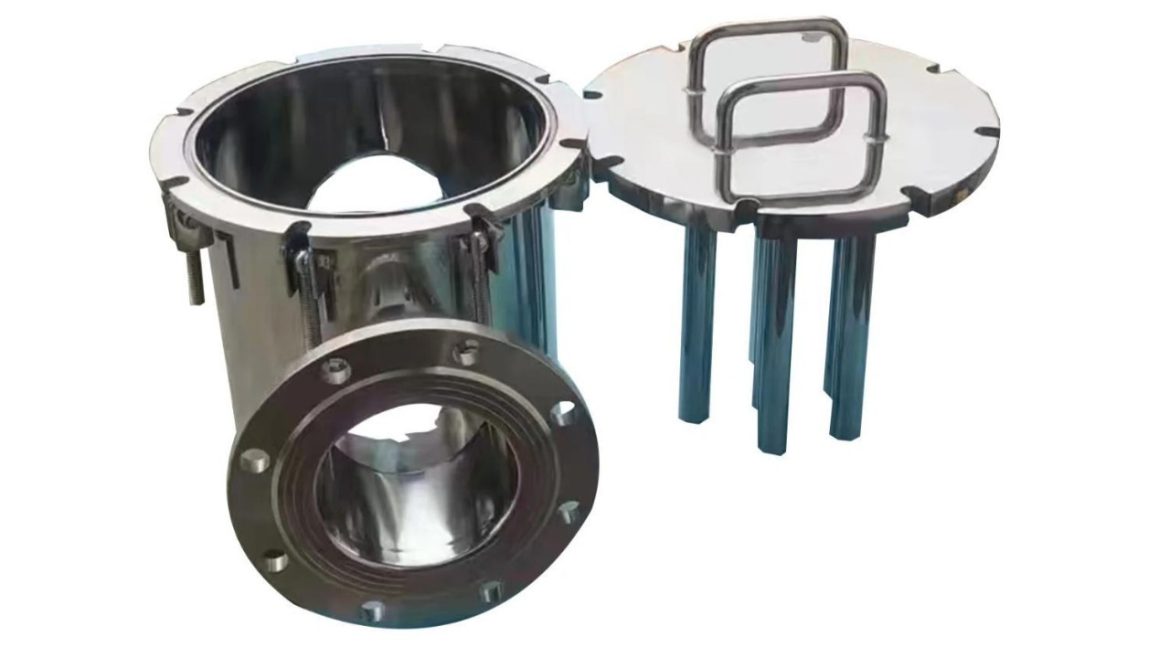In pharmaceutical manufacturing, ensuring the purity and safety of products is paramount. Contamination from foreign materials, especially ferrous particles, can compromise the quality of medicines and pose significant risks to consumer health. Magnetic traps provide an effective solution to mitigate these risks by capturing and removing metal contaminants during production. These devices enhance the overall safety of the manufacturing process, protecting both the final product and the machinery used in production. In this article, we will explore how magnetic traps play a critical role in reducing risks in pharmaceutical manufacturing, ensuring both compliance with industry regulations and the highest standards of product quality.
Advantages of Using Magnetic Liquid Traps in Pharmaceutical Manufacturing
Magnetic liquid traps offer an effective solution to prevent metal contamination in liquid pharmaceuticals. By efficiently removing ferrous and non-ferrous particles, these traps improve the quality of the final product, safeguard equipment, and support compliance with stringent safety regulations. In this section, we’ll explore the key advantages of using magnetic liquid traps in pharmaceutical manufacturing.
1. Enhanced Product Purity
Magnetic liquid traps are highly effective in removing metal contaminants that may inadvertently enter liquid pharmaceuticals during production. By eliminating these impurities, magnetic liquid traps ensure that drugs are free from harmful particles, which is essential for maintaining product purity. This level of contamination control helps meet the strict purity standards required in the pharmaceutical industry.
2. Protection of Equipment and Machinery
Ferrous and non-ferrous metals can cause significant damage to equipment, such as pumps, valves, and filters, if they are not removed from the production process. Magnetic liquid traps capture these particles before they reach critical machinery, protecting equipment from abrasion, wear, and clogging. This helps reduce maintenance costs, downtime, and the risk of expensive repairs, thereby increasing the overall efficiency of the manufacturing process.
3. Regulatory Compliance
Pharmaceutical manufacturers are subject to stringent regulations and quality control standards set by authorities like the FDA and EMA. Failure to meet these standards can result in product recalls, fines, and reputational damage. Magnetic liquid traps help ensure compliance with safety regulations by preventing metal contamination, which is often a key focus of inspections and audits. By incorporating magnetic traps into the production process, manufacturers can ensure they meet required safety and quality benchmarks.
4. Cost-Effectiveness
Magnetic liquid traps offer a cost-effective way to enhance the quality and safety of liquid pharmaceuticals. Unlike traditional filtration methods that may require expensive consumables or frequent maintenance, magnetic traps require minimal upkeep and no ongoing costs for replacement parts. The low operational costs and long lifespan of magnetic liquid traps make them an economical choice for pharmaceutical manufacturers looking to improve both efficiency and product quality.
5. Versatility and Adaptability
Magnetic liquid traps can be easily integrated into various stages of pharmaceutical manufacturing, from mixing and formulation to packaging. These devices are versatile and adaptable, handling a wide range of liquid types, including aqueous solutions, suspensions, and viscous liquids. Their ability to be customized for specific applications makes them an invaluable tool in maintaining the safety and purity of pharmaceutical products across different manufacturing processes.
Conclusion
Magnetic traps are effective in reducing risks in pharmaceutical manufacturing by removing metal contaminants that could affect product quality and safety. These devices help maintain the purity of pharmaceuticals, protect equipment from damage, and ensure compliance with industry regulations. By integrating magnetic traps, manufacturers can avoid contamination issues, lower maintenance costs, and enhance production efficiency. Companies like Jinhong are advancing magnetic trap technology, providing reliable solutions that improve contamination control and support the safety of pharmaceutical products. As the industry continues to prioritize safety and quality, magnetic traps remain a key tool in minimizing risks in manufacturing processes.
